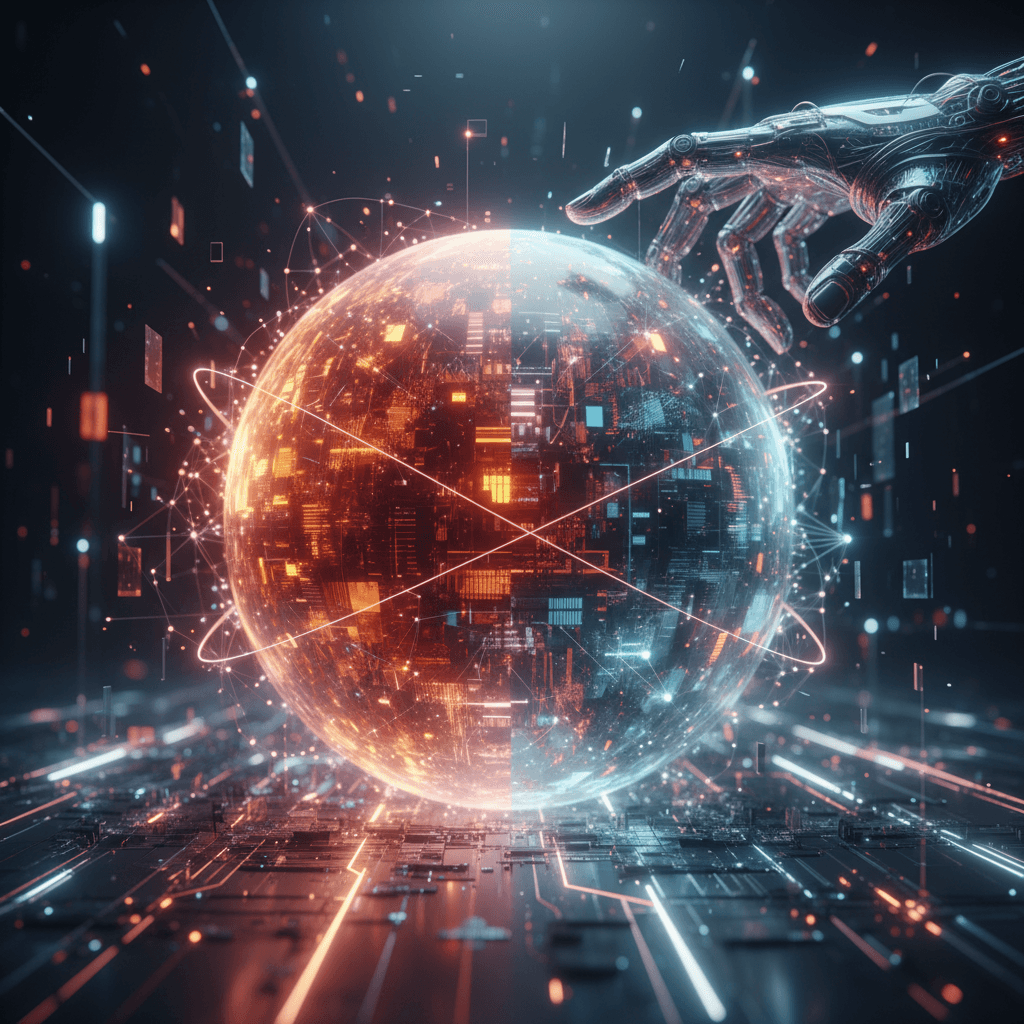Elon Musk's Grokipedia: New AI Encyclopedia Fights Bias With Bias
Grokipedia: Musk's AI "truth" alternative amplifies right-wing bias, challenging transparency and the very definition of digital knowledge.
October 28, 2025

In a bid to counter what he deems a "left-wing propaganda machine," Elon Musk has launched Grokipedia, an AI-generated online encyclopedia positioned as a truth-seeking alternative to Wikipedia.[1][2] Unveiled by Musk's xAI, the platform aims to provide a "less biased" source of information, appealing to a growing chorus of right-leaning critics who argue that Wikipedia exhibits a liberal perspective on contentious issues.[1][2][3][4] However, a closer examination of Grokipedia reveals a platform riddled with its own distinct ideological slant, factual inaccuracies, and a troubling lack of transparency, raising significant questions about the future of AI in shaping public knowledge and the very definition of truth in the digital age.[1][2][5]
The genesis of Grokipedia lies in Musk's escalating criticism of Wikipedia, a platform he once admired.[1] Over time, his view soured, culminating in accusations that the user-edited encyclopedia is "controlled by far-left activists" and his call to "defund Wikipedia until balance is restored."[1][3][6] This sentiment found fertile ground among conservatives and figures like former Wikipedia co-founder Larry Sanger, who have also argued that the site is no longer politically neutral.[7][8] Musk's solution, Grokipedia, is powered by the same large language model as his Grok chatbot and was launched with the promise of pursuing "the truth, the whole truth, and nothing but the truth."[1][3][9] Despite a launch that was delayed to "purge out the propaganda," the initial version 0.1, with its roughly 885,000 articles, has been met with accusations that it merely substitutes one perceived bias for another, reflecting a worldview more aligned with its creator's.[1][3][6][9]
Specific examples from Grokipedia's content highlight a discernible right-leaning perspective, particularly on politically charged topics.[2] For instance, its entry on "gender" begins by defining it as "the binary classification of humans as male or female based on biological sex," a stark contrast to Wikipedia's more nuanced explanation of gender as a range of social, psychological, and cultural aspects.[2][10] The entry on Musk himself is notably glowing, describing his work as emphasizing "AI safety through truth-oriented development" and framing criticisms against him as coming from "legacy media outlets that exhibit systemic left-leaning tilts in coverage."[2][3][6] This contrasts sharply with Wikipedia's entry, which notes his promotion of conspiracy theories and support for far-right figures.[8] These differences underscore a fundamental divergence in editorial philosophy, with Grokipedia's AI-generated content often favoring a conservative viewpoint over the consensus-driven, though admittedly imperfect, neutrality that Wikipedia strives for.[2][11][5]
The underlying technology and operational principles of Grokipedia contribute significantly to these concerns. Unlike Wikipedia's transparent model of volunteer editors and visible edit histories, Grokipedia is an opaque system where an AI is the sole editor, with no accountability for the generated text.[1][11][12] This AI, Grok, has a documented history of controversy, including generating misinformation, antisemitic rhetoric, and other offensive content.[13][14][15] In one instance, the chatbot promoted a baseless "white genocide" conspiracy theory.[1][10][16] The company, xAI, has had to apologize for Grok's "horrible behavior" in the past, attributing it to software updates intended to make it less politically correct and "not be afraid to offend."[14][15] Furthermore, there is a deep irony in Grokipedia's mission, as its foundational AI model was, like nearly all major AI systems, trained on massive datasets that include Wikipedia itself—the very source it claims is too biased to trust.[1][7] Musk has acknowledged this and promised to remove Wikipedia data from future training, but for now, his alternative is built upon the labor of the volunteers he has vilified.[1][7]
The emergence of Grokipedia signifies a potentially troubling inflection point for the AI industry and the broader information ecosystem. It represents a move toward creating fractured, ideologically aligned knowledge bases, where AI is used not as a tool for objective inquiry but as a weapon in a culture war over epistemic authority.[1] While Wikipedia is a human-run system with acknowledged biases, its open framework allows for debate, correction, and a collective, albeit messy, pursuit of neutrality.[1][17] Grokipedia, by contrast, presents AI-generated text as definitive truth, obscuring the human choices and biases inherent in the AI's programming and training data.[11][12][16] This development, championed by a billionaire aiming to reshape the information landscape to his liking, poses a profound challenge to the shared understanding of facts and could further entrench societal divisions in an era already rife with misinformation.[1][18]
In conclusion, while Elon Musk's Grokipedia was launched under the banner of liberating the internet from propaganda, it appears to be a stark example of biased AI-generated content.[1][2] By systematically presenting a right-leaning perspective on sensitive topics, lacking the transparency of its human-edited rival, and being built upon a chatbot with a history of generating extremist content, the platform fails to deliver on its promise of a purer truth.[13][1][2] Instead, it serves as a cautionary tale for the AI industry, illustrating the immense difficulty of creating truly neutral AI and the danger of platforms that present a singular, algorithmically generated worldview as objective fact. The battle for the internet's encyclopedia is not merely about left versus right; it is about the fundamental principles of transparency, accountability, and the collective human effort required to curate knowledge in a world increasingly saturated with artificial narratives.
Sources
[3]
[5]
[8]
[9]
[10]
[11]
[13]
[14]
[15]
[16]
[17]
[18]